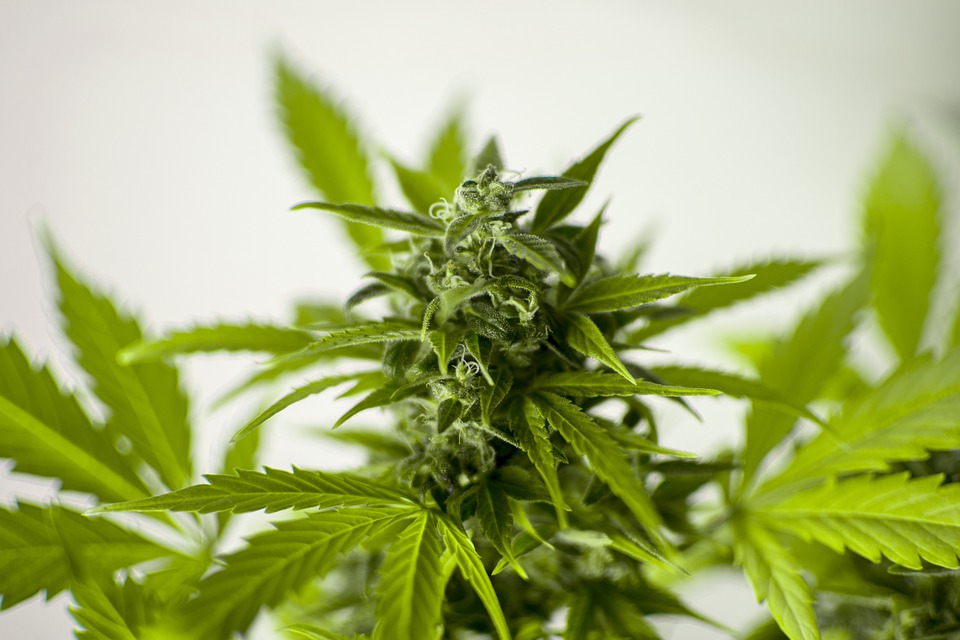Recreational use of marijuana is now legal in eleven US states, which is great news for American cannabisseurs. Not only are cannabis users permitted by law to consume the herb; they are also spoilt for choice on how to do so — edibles, oils, and even vape cartridges are as rife in the market as good old dried buds and rolling paper.

If you are new to any of these methods, however, some questions may be lingering on your mind. For example: will ingesting weed in edible form yield a different kind of “high” from smoked weed? How long does weed stay in your blood and how will you be able to detect traces of weed in your system even after the high is gone? You may be worried about adverse effects to your health, feel nervous about a drug test at work, or just genuinely in need of the knowledge for your peace of mind.
Regardless, this feature aims to shed light on two of the most popular forms of weed consumption, common methods of testing for traces of cannabis in your system, and what reputable cannabis suppliers think are the “best practices” when smoking or eating cannabis for the first time. Read further for some valuable info:
How Your Body Processes Smoked Cannabis VS Edibles
There has been considerable debate as to the best method of consuming cannabis; on one end, you will find the smokers who take comfort in their daily puff, while on the other, you will find the health-conscious advocates of eating magic brownies, cookies, or just about anything culinary that creatively incorporates weed.
One thing is for certain, however: these two camps know the difference in how your body processes smoked weed versus edibles. Smoking cannabis heats it up to a high temperature of 800 °C, causing a precursor compound called tetrahydrocannabinolic acid (THCA) to convert into Delta-9-tetrahydrocannabinol (Delta-9-THC). Delta-9-THC, a psychoactive molecule, then travels through the body from the lungs to the user’s bloodstream and lastly to the user’s brain, which can all take place in a matter of minutes. Weed smokers then experience a high of about two to three hours, and during this short period, they may feel calm, relaxed, and introspective. It is worth noting that Delta-9-THC is different to Delta-8-THC, although the effects are similar. The two cannabinoids have the same molecular structure, however, Delta 9 is significantly more potent than Delta 8, which can cause psychoactive effects, such as intensified visual and auditory sensations. Delta 8 is mostly distinguished with relaxing properties and helps with several medical conditions like stress, anxiety, chronic pain, etc. This and many more benefits explain the wide availability of a variety of products in online stores like https://www.drganja.com/delta-8-thc as well as in physical shops and pharmacies. Cannabis products exist in different forms, from edibles to vapes and tinctures. You can click here to learn more about Delta-8-THC.
Eating cannabis safely, on the other hand, involves heating it to the much lower temperature of 150 °C and dissolving the activated tetrahydrocannabinol (THC) into a fatty or oily base. The body processes ingested Delta-9-THC differently from a smoked chemical compound, metabolizing it through the liver before its entry into the bloodstream. In the process, the Delta-9-THC converts into an even stronger chemical compound called 11-Hydroxy-Δ⁹-tetrahydrocannabinol (11-oH-THC). It manifests in a high that takes longer to hit compared to smoked THC, but lasts from four to eight hours and with a much greater intensity.
How Long Does Weed Stay In Your System And Other Frequently Asked Questions
Distinguishing info about smoked vs. edible cannabis aside, you may want to know about their after-effects. Below are three questions new cannabis users often ask, and answers that may prove helpful.
Q: How long does weed stay in your system? What factors affect how long THC stays in the body?
Though a high can last anywhere between two and eight hours, depending on the method of consumption, weed can stay in one’s system for much longer than that. This is because THC is absorbed by the fatty tissues and organs in your body, and they tend to release the THC back into the blood at a fairly slow rate.
Weed can stay in your system and be detected in your bodily fluids anywhere between 1 day and 90 days from your last usage. It will really depend on what method you used, how frequently you consume weed, and what manner of test you’re undergoing to detect traces. Be forewarned: it takes longer for weed to metabolize in the bodies of frequent, heavy users, which means that it also takes longer for it to exit the system completely. Take note: Depending on which edibles Canada product you buy, the effects will be different. This is because each edible product has different cannabis dosages. They also have different THC and CBD amounts.
Q: How can one find out if there are still traces of cannabis in one’s body?
There are four known ways to detect traces of cannabis in one’s body. Such tests are meant to measure metabolites, or the byproducts of the active substance that are still in the system. The four testing methods are:
- Urine testing (which can detect traces up to 15 days after last use);
- Blood testing (up to 25 days after last use);
- Saliva testing (up to 29 days after last use), and;
- Hair follicle testing (up to 90 days after last use).
If you are wondering why the threshold for hair follicle testing is so wide, it is because tiny blood vessels carry traces of cannabis to your hair and they can remain in that same for up to three months. Hair follicle testing is not the norm for most companies that conduct drug tests, but if you want to play it very safe, take note of the maximum time period that weed can stay in your body.
Q: Are there any health and safety precautions that I need to know about before I try smoking or eating cannabis products?
Once you ingest weed in any manner, there’s no hard and fast way to speed up your metabolism and get it out of your system. Knowing this, you have to be responsible about your consumption. Take note of how many grams of cannabis you’re consuming at any given time; don’t shock your system by introducing a large amount at once.
And do not fall for herbal supplements or weed detox kits that are marketed as quick solutions to metabolizing weed — your body can only break down THC in a manner that’s natural to it!
Conclusion
Both smoked and edible cannabis come with their own pros and cons, but whichever you choose, you should be aware of what is happening to your body. Consuming ganja can be quite the pleasurable experience on its own, but nothing beats having optimum control over one’s high and one’s health both at the same time!







